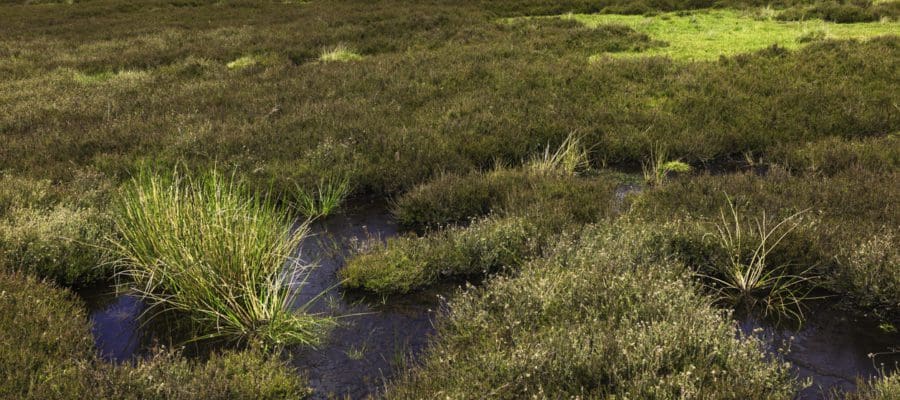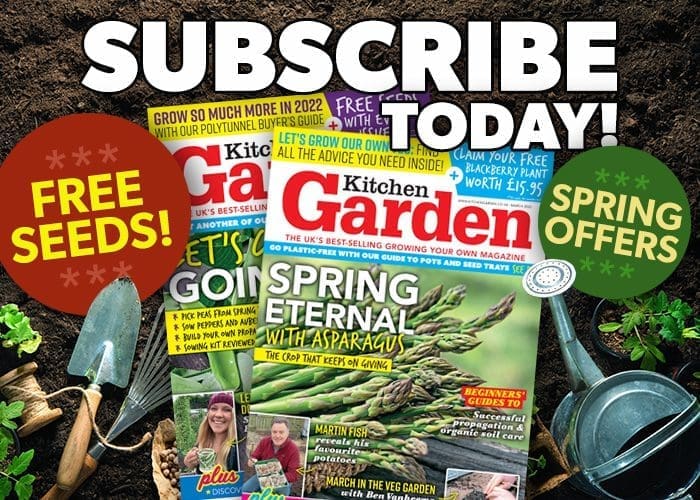The Wildlife Trusts have released a free handbook to help people go peat-free in their gardens and to recognise the importance of peatlands for nature and climate.
Last August, the government announced the sale of peat compost to amateur gardeners will be banned by the end of 2024. As this is 18 months away, The Wildlife Trusts are urging people to make the switch to peat-free gardening now.
The Wildlife Trusts are disappointed that the ban on commercial use of peat will not happen fully until 2030.
Enjoy more Kitchen Garden reading in the monthly magazine.
Click here to subscribe & save.
The new handbook, Greener Gardening: Perfecting Peat-Free provides tips and tricks for getting the most out of compost, a guide for making compost at home, and information about buying peat-free products.
Peatlands are the UK’s biggest terrestrial carbon-store, as well as providing vital habitat for wildlife. Research by The Wildlife Trusts revealed that extraction for use in horticulture has caused up to 31 million tonnes of CO2 to be released since 1990.
Sara Booth-Card, peatlands campaigner for The Wildlife Trusts, says:
“Buying or making sustainable, peat-free compost is an easy way for gardeners to help nature and the climate. This free guide provides lots of useful information to help people transition to peat-free gardening this year.
“Peatlands have some of the quirkiest plants and animals found in the UK. They include insect devouring plants like sundews, camouflaged golden plover chicks that look like little pom-poms and sphagnum moss that can hold 20 times its own weight in water. UK peatlands store more carbon than all the forests in the UK, France and Germany combined. The nature and climate crises mean we must do some things differently, including gardening without peat.”
The Wildlife Trusts are continuing to call upon the UK Government to:
- Ban the extraction and commercial trade of peat immediately
- Ban all horticultural uses of peat as soon as parliamentary timeframes allow, or by 2024 at the latest
- Restore all bogs damaged by the removal of peat by 2030
The Wildlife Trusts are leading peatland restoration projects across the UK and have restored over 50,000 hectares of peatland in England alone. Working with partners and landowners, there are short term plans to repair a further 20,000 hectares.
Greener Gardening: Perfecting Peat-Free is free to download at:
www.wildlifetrusts.org/download-our-guide-going-peat-free
 Enjoy more Kitchen Garden reading in the monthly magazine. Click here to subscribe.
Enjoy more Kitchen Garden reading in the monthly magazine. Click here to subscribe.
Sign-up to the Kitchen Garden Magazine Newsletter
Enter your e-mail address below to see a free digital back issue of Kitchen Garden Magazine and get regular updates straight to your inbox…
You can unsubscribe at any time.
About the Author
- FREE ORGANIC SEEDS WITH YOUR SHOPPING - 24th April 2024
- PRODUCT REVIEWS: PLANTING TOOLS (MAY 24) - 20th April 2024
- RHS Chelsea Flower Show 2024: The Bowel Research UK’s Microbiome Garden - 9th April 2024









